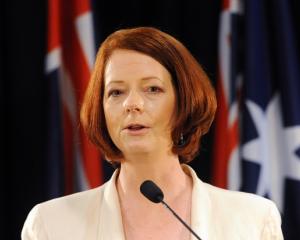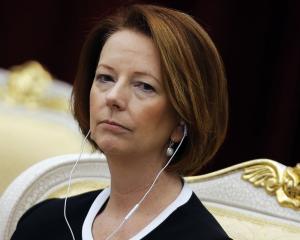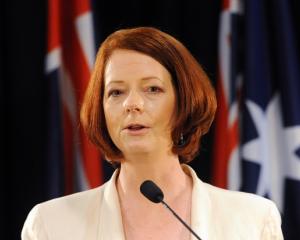In a speech to be to be delivered to the Australia-Israel Chamber of Commerce, Ms Gillard will outline the major milestones on the reform road in industry assistance this year.
"We will hand down a budget surplus in May," she will say.
"It is an ambitious goal, and to deliver it, the government will pursue an ambitious program of investments and reforms in 2012," she will say.
High-speed broadband will be rolled out to more than 60 sites across Australia.
As well, the number of university students will increase by 20,000 from last year.
Carbon pricing and the minerals resource rents tax will both start on July 1.
"The government is funding tax cuts for small businesses and over time funding cuts for all businesses, higher super and new infrastructure in the regions," Ms Gillard will say.
"New business tax arrangements to reward innovation will be the subject of extensive work by the Business Tax Working Group, leading to a final report on the future of the business tax system in December."
Ms Gillard will also emphasise the new portfolio of Industry and innovation, which will be part of the government's new approach to collaborating with industry.
"These are big milestones on the reform road this year, policies which lift productivity and build the new economy."
Opposition Leader Tony Abbott also affirmed on Tuesday that the coalition would deliver a budget surplus if elected.
The prime minister will tell her audience that the main difference between Labor and the coalition is the government's commitment to directly supporting industry.
She attacked the opposition for advocating a $500 million cut in assistance to the automotive industry.
"Smart and sustainable co-operation between government and industry is the model which has been pursued by reformist Labor governments in Australia for decades," she will say.
"There is no case for a half-billion-dollar cut to automotive industry assistance in the current economic environment.
"Nothing could better illustrate the real stakes at play in Australian politics than this debate between the parties over government support for jobs."






